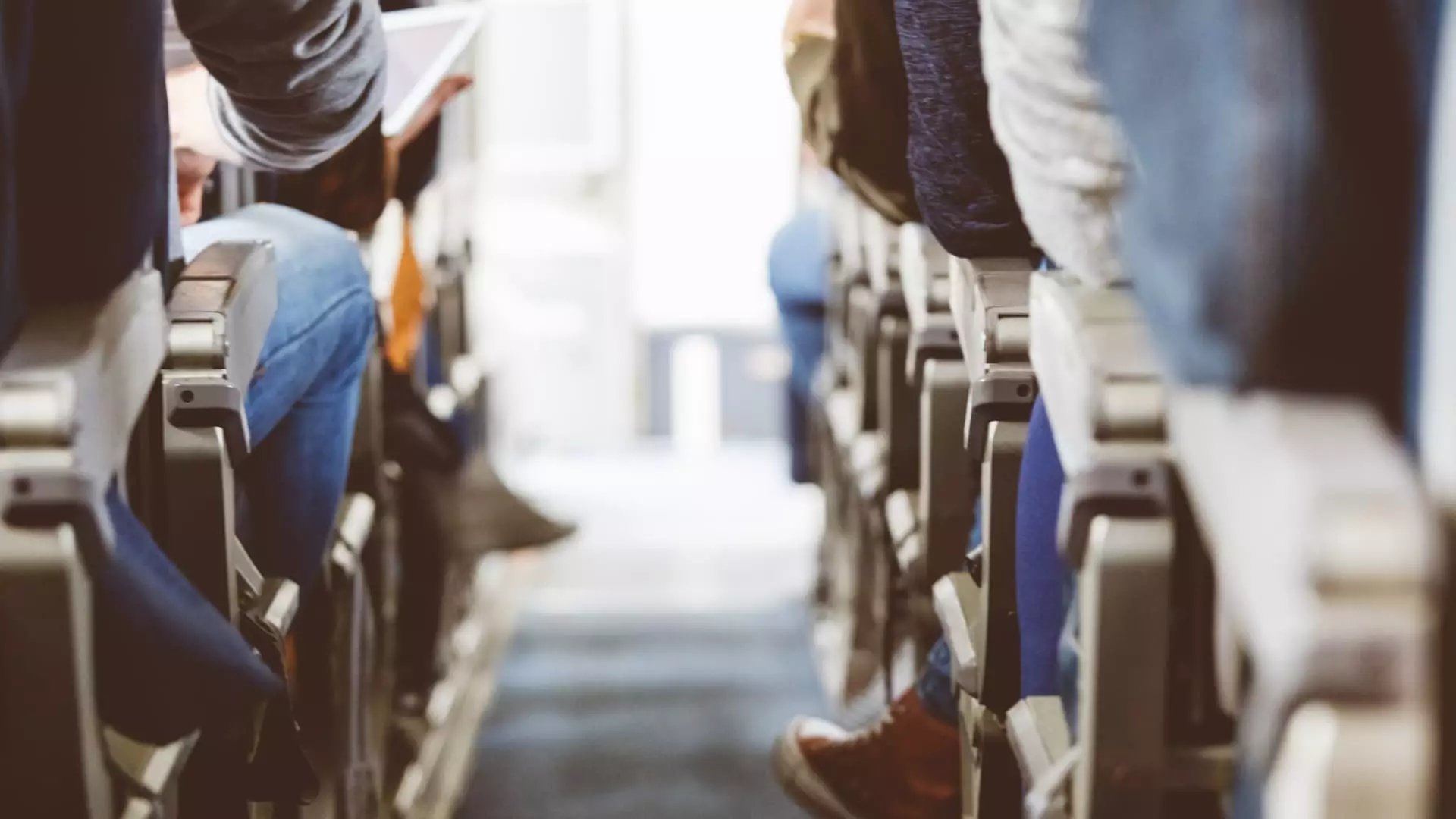In the cramped quarters of commercial airplanes, the simple act of reclining one’s seat has become a flashpoint for discomfort and frustration among travelers. A playful yet pointed campaign by La-Z-Boy, the prominent furniture maker known for its relaxing recliners, delves into this contentious issue. Their initiative not only highlights the physical sticking points—the challenges of spilled drinks and squished knees—but also opens up a broader conversation about passenger etiquette in the age of both increasing sizes and shrinking space.
La-Z-Boy launched the campaign in late November, also featuring a petition advocating for an “upright” flying experience. As of Monday, this petition has accumulated over 186,000 signatures, underscoring the growing chorus of voices against seat reclining. The company’s cheeky tone juxtaposes its identity as a purveyor of comfort with an appeal for travelers to reconsider their flying habits. The core message resonates with many who feel that just because reclining is an option, it does not necessarily mean it should be exercised frequently, especially in tight spaces.
Passenger opinions on reclining are starkly divided. Some vehemently oppose the practice, citing the encroachment on personal space and comfort, while others contend that the reclining feature was designed for use and should not be shunned. Interestingly, precious few middle-ground arguments exist in this debate. Some travelers advocate for a practical approach, suggesting that long flights or night flights are more appropriate scenarios in which reclining is both expected and acceptable.
La-Z-Boy’s campaign cleverly illustrates how one passenger’s decision to recline can spark a chain reaction, impacting everyone seated behind them. This comedic visualization serves to highlight a serious point—reclining affects the overall dynamics of passenger comfort on flights, demonstrating how a seemingly small action can lead to widespread discontent among fellow travelers. The campaign cleverly points out that the last row can sometimes be a refuge, free from the threat of reclining seats—a testament to the peculiar social dynamics of air travel.
A survey conducted by YouGov in 2023 reveals fascinating insights into global perspectives on reclining. European travelers express significantly less tolerance toward the practice compared to their counterparts in the United Arab Emirates, where a surprising majority remains unfazed by the reclining seat phenomenon. Interestingly, the survey also taps into broader social norms regarding in-flight behaviors—suggesting cultural variances extend far beyond reclining. For instance, while instances of public affection are mostly tolerated in Europe, they are deemed inappropriate by many Emirati travelers.
The La-Z-Boy campaign succeeds in bringing the ongoing debate about airplane seating arrangements to the forefront. It poses deeper questions concerning passenger norms, comfort, and the implications of individual choices on the collective flying experience. As airline cabins continue to evolve with dwindling space, the need for clear social etiquette and consideration of fellow passengers becomes more crucial than ever. In the end, perhaps the solution lies not just in the options available but in the willingness to respect the shared environment of our aerial journeys.


Leave a Reply